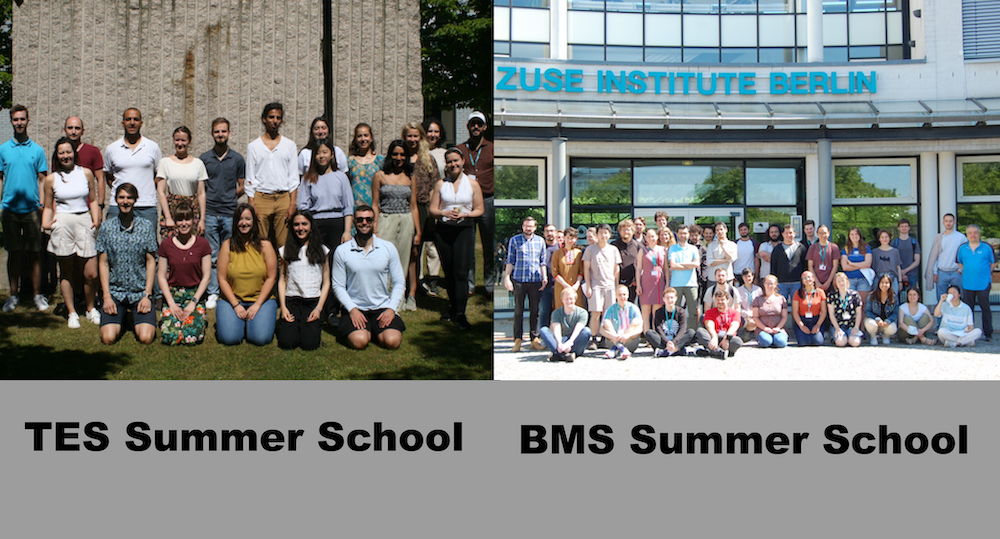Two BMS Summer Schools in June 2022

Photos: © Sarah Wolf (left) | © Heather Heintzel (right)
BMS Summer School: Geometry and Topology in a Discrete Setting (23 May – 03 June)
The two-week BMS Summer School “Geometry and Topology in a Discrete Setting” was placed live from 23 May to 03 June 2022 at Zuse Institute Berlin. The summer school introduced 56 participants (36 BMS/20 external) from 12 countries to mathematics at the confluence of discrete mathematics, geometry, and topology. The focus was on recent work that exhibits the hidden geometry and topology of combinatorial problems.
Three lecture series were offered, given by international experts: Pavle Blagojević (FU Berlin/ Mathematical Institute of the Serbian Academy of Sciences and Arts), Florian Frick (Carnegie Mellon University/ FU Berlin), and Shira Zerbib (Iowa State University). The lectures were accompanied by problem-solving sessions, research-focus talks, and further lectures by another six invited speakers.
Asked about their impressions, the participants enjoyed the well-organized event in the vibrant city of Berlin with a high level of math talks and stimulating lectures.
TES: Summer School „Mathematics of Complex Social Systems” (09-17 June)
The BMS Summer school “Mathematics of Complex Social Systems” took place from 9 to 17 June at Freie Universität Berlin and Zuse Institute Berlin and was part of the Thematic Einstein Semester “The Mathematics of Complex Social Systems: Past, Present, and Future”.
It was organized by Sarah Wolf (FU Berlin), Nataša Djurdjevac Conrad (ZIB), Stefanie Winkelmann (ZIB), Stefan Klus (U Surrey) and Luzie Helfmann (ZIB). The Thematic Einstein Semester is arranged within the framework of the Berlin Mathematics Research Center MATH+ and supported by the Einstein Foundation Berlin. In cooperation with the Berlin Mathematical School and the School of Complex Adaptive Systems at Arizona State University, this summer school brought together an international and interdisciplinary group of around 40 Master’s and Ph.D. students. The participants came from Germany, Austria, Great Britain, France, the Netherlands, Egypt, and the USA.
The students came from mathematics and related fields with a strong interest in societal phenomena and students from humanities or social sciences with a strong interest in quantitative research. They learned about different modeling approaches for complex social systems through a series of expert lectures and hands-on workshops. The topics included agent-based and network models with applications such as opinion dynamics and the evolution of cooperation, economics, and archeological research.

